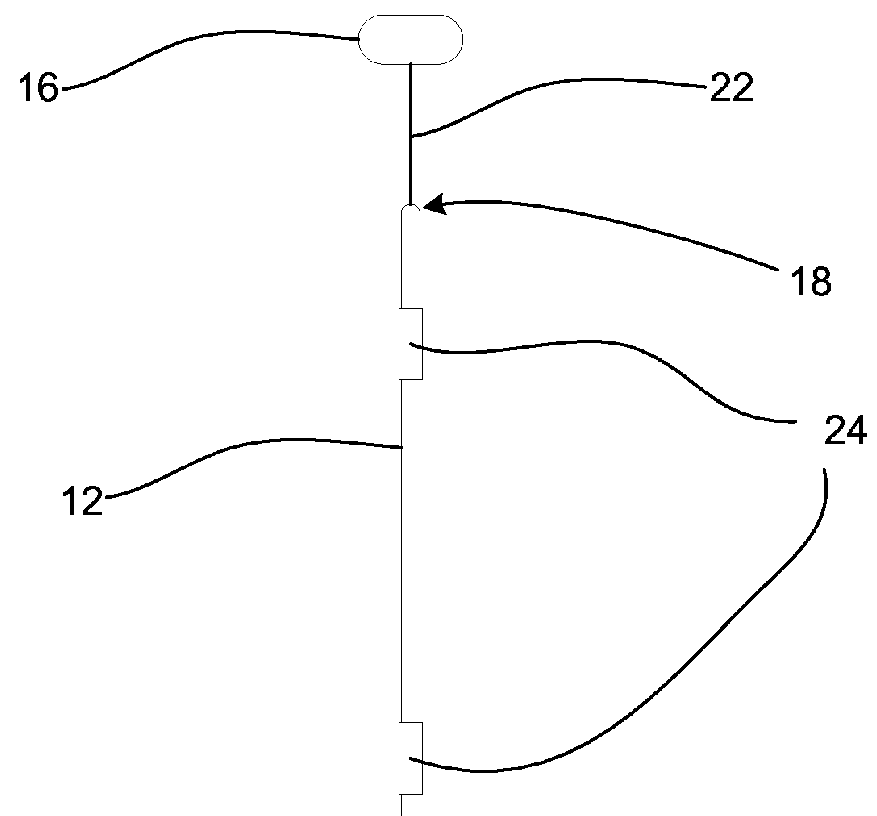Shark barrier
a technology of shark and barrier, applied in the field of barriers, can solve the problems of not forming a complete barrier, inability to protect large areas, and other aquatic creatures such as turtles and dolphins are often caught and killed in the nets, and achieve the effect of high density
- Summary
- Abstract
- Description
- Claims
- Application Information
AI Technical Summary
Benefits of technology
Problems solved by technology
Method used
Image
Examples
Embodiment Construction
[0024]A shark barrier (10) is shown in FIG. 1 and includes a plurality of resiliently flexible, elongate members (12) each anchored to a sea floor (13) by means of an anchoring base (14) and extending in a generally upright position towards the sea surface (15). The elongate members (12) are arranged so as to have the appearance of a thicket when viewed from within the water, below the sea surface (15). In order to ensure that the elongate members (12) extend in the generally upright position, a buoy (16) is secured to each member (12) at its upper ends (18). The buoys (16) can be loosely secured together by ropes (20) to prevent the members (12) moving too far apart and so to assist in maintaining the appearance of a thicket, as shown in FIG. 3.
[0025]Referring also to FIG. 2, the elongate members (12) are each provided by a length of a foamed plastics material having a cylindrical cross-section. A chain (22) extends axially through each member (12) and is secured at either end to a...
PUM
 Login to View More
Login to View More Abstract
Description
Claims
Application Information
 Login to View More
Login to View More - R&D
- Intellectual Property
- Life Sciences
- Materials
- Tech Scout
- Unparalleled Data Quality
- Higher Quality Content
- 60% Fewer Hallucinations
Browse by: Latest US Patents, China's latest patents, Technical Efficacy Thesaurus, Application Domain, Technology Topic, Popular Technical Reports.
© 2025 PatSnap. All rights reserved.Legal|Privacy policy|Modern Slavery Act Transparency Statement|Sitemap|About US| Contact US: help@patsnap.com



